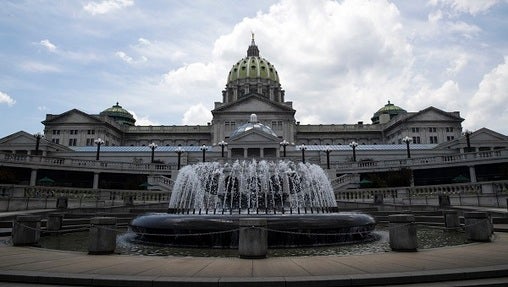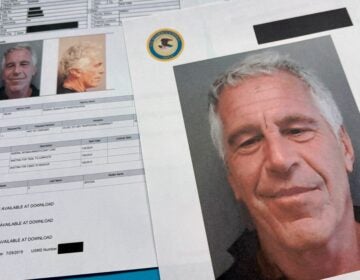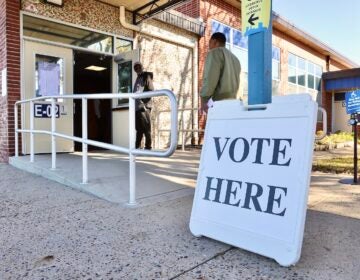Pennsylvania will allow Harrisburg to keep special taxing authority — but not forever

Shown is the Pennsylvania Capitol building in Harrisburg, Pa. (Matt Rourke/AP Photo)
A Pennsylvania state agency says it’s willing to let Harrisburg keep its uncommonly high taxes through 2020 — the latest development in a battle between the city and state over how it’ll pay its bills after shedding its “distressed municipality” status.
The city, however, is hoping it will be able to keep its special taxing authority permanently.
The debate centers on Harrisburg’s move to exit Act 47, the fiscal oversight program run by the state Department of Community and Economic Development.
A previous version of the exit plan was derided in Harrisburg because it nixed the city’s ability to levy earned income and local services taxes that are higher than Pennsylvania usually allows. City leaders say this would lead to service cuts and big property tax hikes.
With DCED’s support for continuing the current taxation structure, Patty Kim, a Democrat who represents Harrisburg in the state House, said the new plan acknowledges the capital city’s unique challenges.
“We get 30,000 commuters coming to the city as state workers,” she noted. “That is a lot of people who we have to support, and who use our infrastructure. And then we also have a very poor tax base.”
Still, the new plan ends the tax provisions after two years. Year three calls for alternative solutions, such as cuts and property tax hikes.
In a statement, Harrisburg Mayor Eric Papenfuse said he’s trying to avoid that.
“My goal remains for a path to exit Act 47 in a way that secures the city’s financial future – sooner rather than later,” he said. “Anything short of this will not be acceptable to the hard-working people of Harrisburg, who have categorically rejected any plan that burdens them with more taxes.”
Kim’s co-sponsoring a bill that would make the higher taxing authority permanent.
It has so far failed to get much traction in the legislature.
“I don’t think that we have convinced a lot of people that we’ve done everything that we can,” she said. “We have the highest trash rates, sewer rates, property taxes — we’ve done all that we could.”
She said she hopes hearings this month convince her fellow lawmakers the concession is necessary.
WHYY is your source for fact-based, in-depth journalism and information. As a nonprofit organization, we rely on financial support from readers like you. Please give today.






